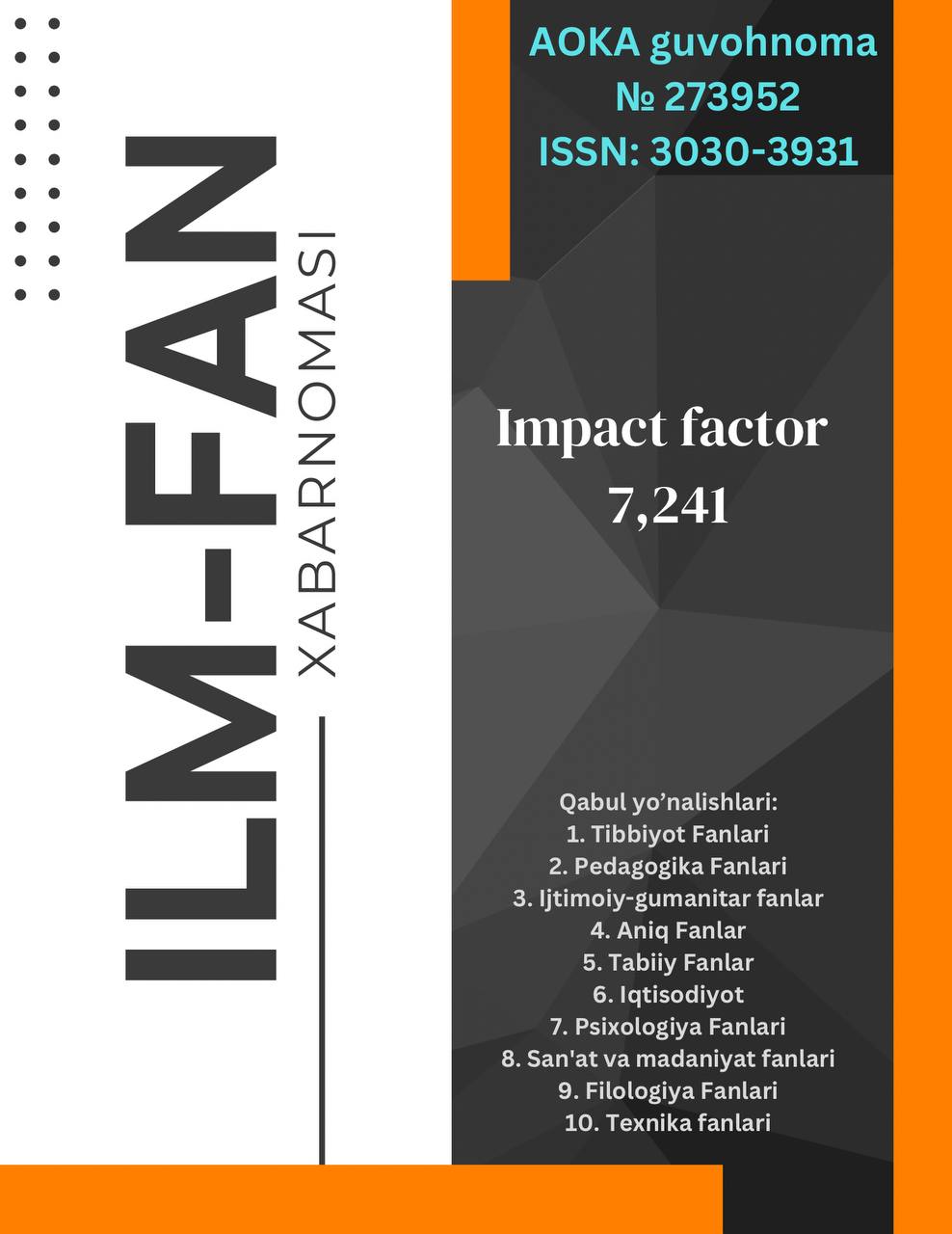AUDITING PROFESSIONAL ETHICS AND ITS DEVELOPMENT IN THE REPUBLIC OF UZBEKISTAN
Keywords:
Auditing ethics, professional ethics, transparency, accountability, Uzbekistan, financial reporting, auditor independence, regulatory framework, economic reforms, international standards, conflict of interest, ethical compliance, capacity building, auditing profession, global integration.Abstract
This article examines the development and challenges of auditing professional ethics in the Republic of Uzbekistan, highlighting its critical role in fostering transparency, accountability, and investor confidence. The evolution of auditing ethics in Uzbekistan is traced across three key phases: initial post-independence reforms, institutional development, and recent modernization efforts aligned with international standards. Despite significant progress, challenges such as insufficient training, conflicts of interest, weak enforcement mechanisms, and external pressures persist. The article proposes measures to strengthen ethical practices, including enhanced regulations, capacity building, independent oversight, and promoting a culture of accountability. Furthermore, the role of international collaboration in aligning Uzbekistan's auditing standards with global best practices is emphasized. The findings underscore that a robust ethical framework is pivotal for enhancing the credibility of the auditing profession and supporting Uzbekistan's ongoing economic reforms and integration into the global financial system.
References
1.Alhassan, A. M., & Yeboah, A. (2018). Ethical Challenges in the Auditing Profession: A Study of Developing Economies. Journal of Financial Ethics, 15(3), 45-59.
2.Armstrong, M. (2021). The Role of Auditing Ethics in Ensuring Financial Transparency. International Journal of Accounting Standards, 28(2), 132-148.
3.Baimatova, M., Kadyrov, N., & Ibragimov, S. (2019). Auditing Practices in Central Asia: Ethical Challenges and Opportunities. Eurasian Business Review, 19(1), 89-101.
4.Choudhary, P. (2020). Auditing and Professional Ethics: A Global Perspective. Journal of Corporate Governance, 12(5), 72-94.
5.DeFond, M., & Zhang, J. (2014). A Review of Archival Auditing Research. Journal of Accounting and Economics, 58(2-3), 275-326.
6.International Ethics Standards Board for Accountants (IESBA). (2021). International Code of Ethics for Professional Accountants (including International Independence Standards). Retrieved from https://www.ethicsboard.org
7.Jenkins, P., & Smith, R. (2019). Bridging the Gap Between Ethical Standards and Practical Application in Auditing. Global Accounting Journal, 16(4), 202-225.
8. Karimov, A. (2001). Development of the Auditing Profession in Uzbekistan: Challenges and Prospects. Central Asian Financial Review, 4(2), 98-110.
9. Mamatkulov, T. (2020). Enhancing Ethical Education in the Auditing Profession of Uzbekistan. Uzbek Journal of Economics, 8(3), 15-28.
10.Nurmatov, K., & Saidov, A. (2020). The Role of Professional Organizations in Promoting Ethical Standards in Uzbekistan. Accounting and Auditing Bulletin of Uzbekistan, 12(2), 35-49.
11.Salehi, M., & Mansouri, R. (2020). The Impact of Auditing Ethics on Financial Reporting Quality. Asian Journal of Accounting Research, 15(1), 22-40.
12.Tursunov, B. (2022). Regulatory Reforms and Ethical Compliance in Auditing in Uzbekistan. Economic Transformation Journal, 10(1), 45-60.
13.World Bank. (2021). Enhancing Financial Accountability: A Case for Strengthening Ethical Standards in Central Asia. Retrieved from https://www.worldbank.org.




